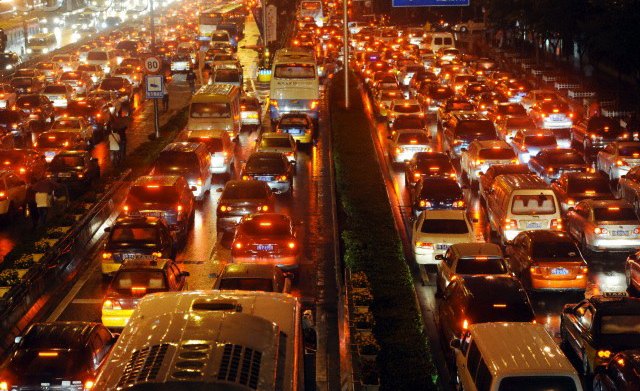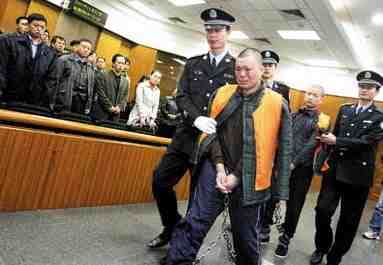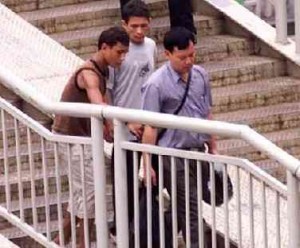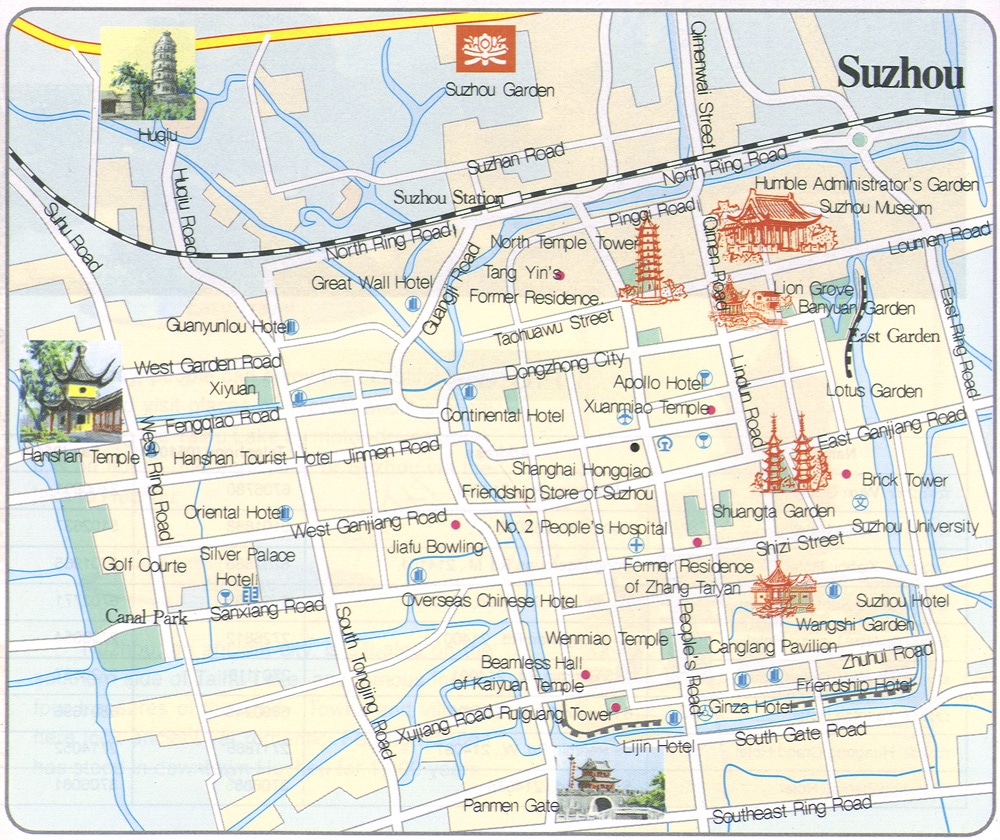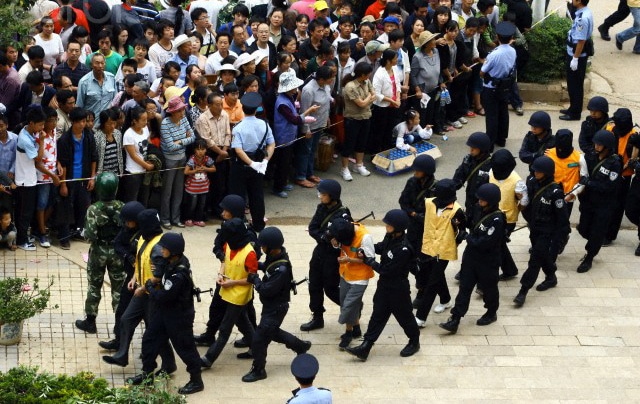Fortunately, China is a comparatively safe place to live when it comes to violent crime that we see in our world today. However, expats and other travelers should be aware of potential natural hazards and China’s strict control of public order. Here are my thoughts on the safety in China and the crime in China.
TRAFFIC: Your biggest mortal threat
Worry less about criminals and worry more about crossing the street. Statistically speaking, the biggest risk to your personal safety while traveling in China is the traffic.
A big part of the problem is that they just haven’t been driving very long. Most drivers are first-generation drivers who probably learned to drive in a day and didn’t learn the basics of defensive driving (or see those scary driving safety films in high school).
Combine this inexperience with a culture of bending the rules and lax traffic enforcement and you’ll understand why China has the world’s highest per capita rate of vehicular fatalities. China has only 3% of world’s drivers but one of the highest per capita rates of road fatalities. It’s widely reported that each day, about 300 people in China die from traffic accidents.
Bottom line: Never play chicken with a Chinese driver! Like most developing countries, pedestrians in China do not have the right of way. In fact, they’re at the very bottom of the vehicular pecking order.
The unwritten rule of the road seems to follow “The Law of the Big”: All vehicles move out of the way of huge trucks barreling down the road. Next, buses muscle smaller trucks and cars off the road. Cars blare their horns to send motorcyclists and bicyclists scattering. And finally, the lowly pedestrian is reduced to a merciless life-and-death game of Frogger. The only exception is that everyone gets the hell out of the way of chauffeured-driven black cars of government officials (typically Audis, which now outsell those in the U.S. market).
So don’t expect cars to stop — or even look for pedestrians — at intersections. Preferring their horns over their brakes, drivers have been conditioned to be supremely confident that pedestrians will jump out of their way.
And beware of drivers running red lights, which is as common in China as smoking in a non-smoking area (which is to say, very common). I’ve seen drivers run red lights a full 3 seconds after it turned red. If you’re crossing a busy street without a traffic light or pedestrian overpass, your best bet is to follow closely behind a local, using them as a lead blocker.
If you’re on your own, the rule of thumb for safety in China is to walk slowly — stopping if necessary — but never unpredictably (for example, never suddenly backtrack!).
Also, always look both ways before crossing, even on a supposed one-way street— bikes and scooters can literally come at you at any direction, even while on the sidewalk.
Crime (and punishment) in China:
Unlike the U.S. where you might get mugged at gun-point — or parts of Europe where pick-pocketing tourists has been elevated to an art form — when it comes to crime in China, on the whole it is extremely safe. Crime against foreigners is rare. And violent crime — like mugging and rape — against foreigners is exceedingly rare. In fact, many women travelers have told me that they feel much safer walking the city streets of China alone at night compared to their own hometowns.
If you think about it, it actually makes sense in light of China’s draconian criminal penalties (by a wide margin, China executes more criminals annually than any other country). It’s also commonly reported that Chinese courts have a 99% conviction rate.
Chinese criminals understand that committing a crime against a foreigner is bad publicity (or “loss of face”) for the country’s lucrative tourism industry. As a result, not many are dumb enough to risk the unusually harsh punishment of a government that now operates mobile execution units — also known as “death vans” (so futuristic and efficient!).
Having said that, you should still be aware that clueless foreign tourists are tempting targets for pickpockets. Pickpocketing, unlike outright robbery, is more common in China since it’s easier for criminals to get away with (no hard evidence). So be especially wary in touristy-areas or crowded places like buses, markets, and train stations. Pickpockets often work in groups to crowd or distract you. Similarly, one person might distract you somehow (e.g. bumping into you, getting into an argument, or “dropping” their change), while their accomplices pick your pocket or steals your bag.
Don’t stash any valuables (such as cameras or iPhones) behind you in a backpack pocket or put all of your cash in a bulging wallet (separate your small spending money from your hidden main stash). Be especially wary at train stations. For example, while waiting in line to buy your ticket, the Chinese tend to push up really tight (for fear of someone cutting in line!) so be particularly cautious about that guy behind you. Also, when at the ticket counter, don’t just casually leave your bag next to you.
If you happen to bust a pickpocket in the act (or are getting scammed or whatever), make a big loud scene. Even if no one around you can understand you (or will come to your rescue), the last thing the pickpocket/scammer wants is attention. And nothing draws a crowd in China like some sort of conflict (especially from a hysterical foreigner!). Assuming you’re in the right, the other person will usually back off quickly. With luck, a policeman will come by (and will almost invariably take the side of a foreign tourist).
Another hot spot for thieves is in crowded restaurants. Notice that the Chinese never just hang their purses or bags on the chair behind them. Instead, they usually eat with it still draped around their shoulder and on their laps. There’s a reason that they do that. Similarly, don’t let your guard down in Starbucks. You might be fooled into thinking that the customers are of a higher caliber, but shady characters sometimes wait patiently for some dumb ass to leave their laptop unattended while they use the toilet.
Bicycle theft is still a big problem when it comes to crime in China. If you happen to be traveling with an expensive bike, always bring it indoors (professional thieves in China can open most locks quickly). And it’s a good idea to lock your luggage to a rack when traveling by train.
Also, experienced travelers will also tell you to be wary of other travelers in your hostel going through your bag. Many of us tend to let our guard down around other seemingly friendly foreigners who we meet on the road. But shady people travel too (I’m looking to you, Joran van der Sloot). And after running out of money, these low-life criminals make a pretty good living traveling anonymously and stealing from fellow travelers.
Final Thoughts | Just Be Cautious
My final thoughts on safety in China and crime in China is to remember that no matter how safe any country is – including China – it still benefits you to be cautious.
Obviously you want to take care of your valuables, but as I’ve mentioned above, it also includes watching what you eat, how you cross streets and how you take a taxi.

